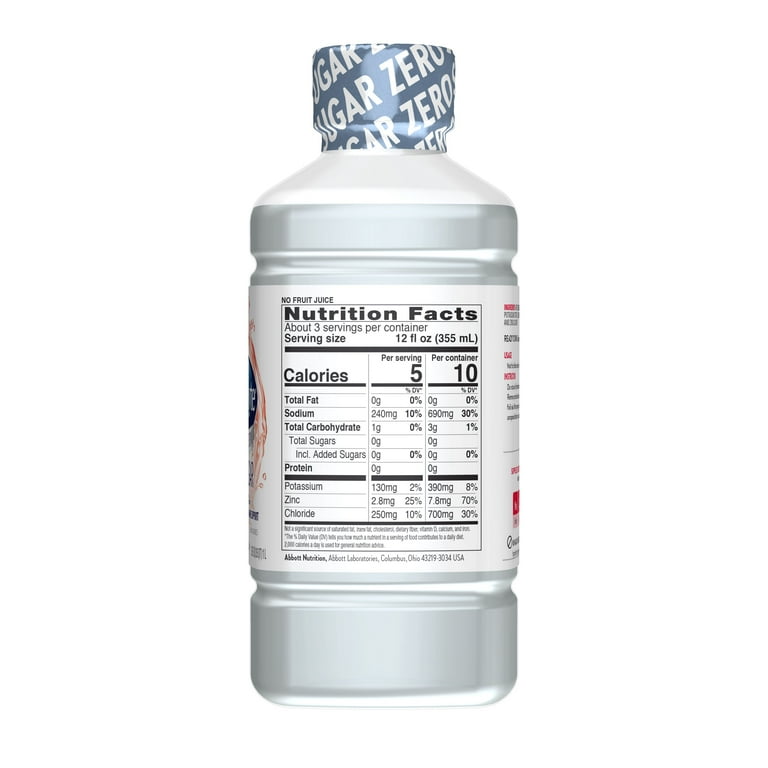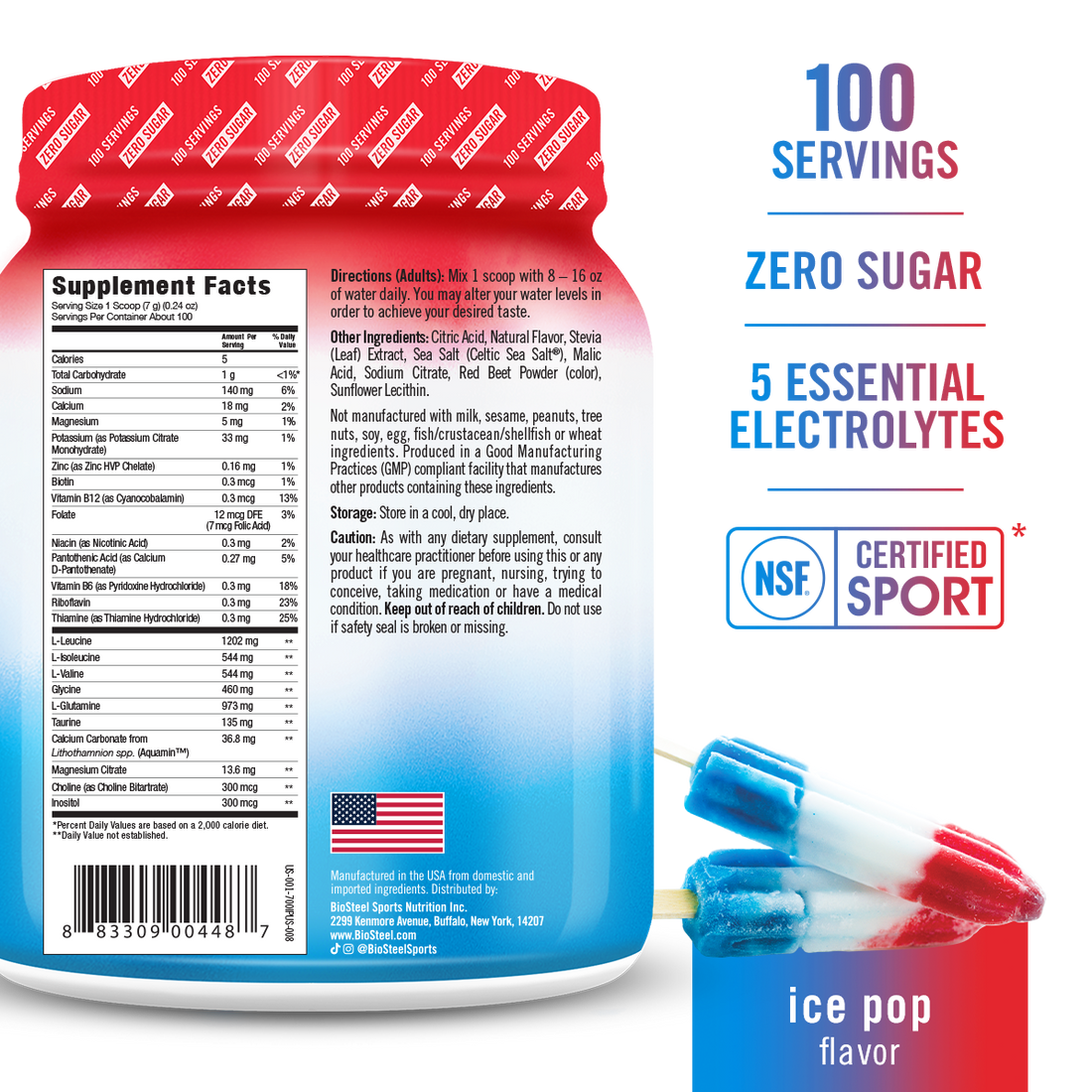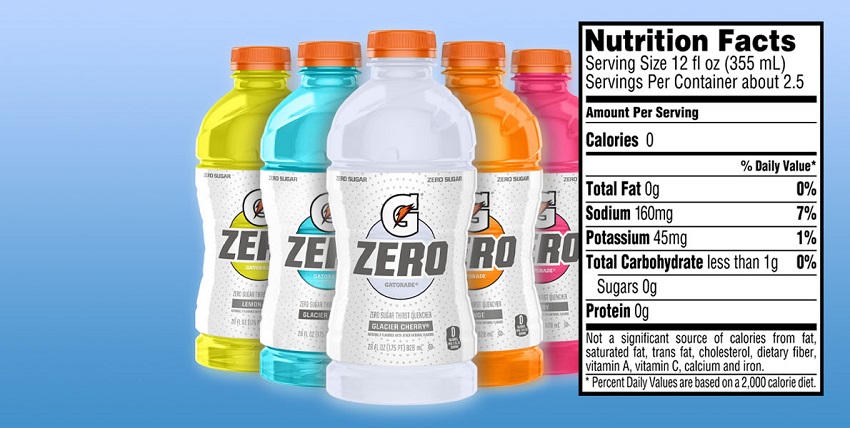Gatorade Zero may be harmful due to its artificial sweeteners and lack of nutritional value. These components can potentially lead to negative health effects when consumed in excess.
Understanding the potential drawbacks of popular beverages is crucial for maintaining a healthy diet. Gatorade Zero, a sports drink designed to offer the hydrating benefits of the original Gatorade with fewer calories, contains artificial sweeteners such as sucralose and acesulfame potassium.
These sweeteners, while reducing calorie count, can carry health risks if consumed regularly over a long period. Despite its promise to keep athletes and active individuals hydrated, Gatorade Zero lacks the nutritional benefits found in natural, whole-food hydration sources and may not support an overall healthy lifestyle. This article explores why choosing Gatorade Zero might not be the best option for your health needs.
The Hype Behind Gatorade Zero
The popular appeal of Gatorade Zero taps into the widespread belief that it aids hydration and performance during sports. Marketed heavily as a calorie-free alternative to regular Gatorade, this drink promises to quench thirst and replenish electrolytes without the sugar. On the surface, it seems ideal for athletes or those seeking a healthier lifestyle. Yet, the marketing might not fully align with the nutritional reality of the product.
Marketing strategies successfully create a glowing image of Gatorade Zero. They portray it as essential for anyone leading an active life. Television commercials, endorsements by athletes, and eye-catching packaging all suggest that it’s a top choice for hydration. But, is it as beneficial as claimed? The gap between the marketed benefits and actual nutritional content merits scrutiny.
Breaking Down The Ingredients
Gatorade Zero includes artificial sweeteners, such as sucralose and
acesulfame potassium. Experts link these to potential health issues. For example, they might change
how our bodies handle regular sugar. Some people may experience digestive discomfort from these ingredients.
Preservatives like citric acid can cause harm too. They keep drinks fresh longer but may trigger allergies
or asthma in sensitive people. Colors added to Gatorade Zero are not always safe. They have ties to hyperactivity
in children. Also, sodium and potassium salts can lead to high blood pressure when
consumed too much. Not all bodies react the same. Yet, many agree that natural options are better.
Artificial Sweeteners And Health Risks
Gatorade Zero might seem like a healthy option, but it’s not. It’s packed with artificial sweeteners that could be bad for your health. Consuming these sweeteners may lead to unwanted health issues in the future. Studies suggest that these ingredients might cause a higher risk of certain diseases.
These sweeteners trick your body. Your body expects calories when it tastes something sweet. With Gatorade Zero, those calories don’t arrive. This mismatch can mess up how your body uses energy. It also changes how your body tells you you’re hungry or full. This could make you want to eat more, which might cause weight gain.

Credit: www.walmart.com
Electrolytes: Needs Vs Myths
Electrolytes help your body stay hydrated. They are vital for your muscles and nerves. Many people believe that sports drinks are essential for hydration. This is not always true. Your body often gets enough electrolytes from a healthy diet.
Gatorade Zero has zero sugar, but it might not be needed. It’s targeted at those who sweat a lot during intense workouts. Not everyone needs extra electrolytes from drinks. Water is usually enough for regular activities.
Calorie Counts And Weight Management
Gatorade Zero claims to have zero calories. This sounds like a diet dream. But, it’s not that simple. Calories are units of energy for our bodies. Not all calories are bad. Our bodies need them to work well. Zero-calorie drinks may confuse our bodies. We may think it’s okay to eat more.
This drink can trick your body into waiting for real food. When it doesn’t get any, you might get hungrier. Then, you might eat too much later. This is the psychology of consumption. Feeling full is not just about caloric intake. It’s about the nutrients too. Gatorade Zero has no nutritional value. It won’t satisfy your body’s needs.
Gatorade Zero And Dental Health
Gatorade Zero has a high acidity level.
This can harm your tooth enamel over time.
Enamel erosion leads to cavities and sensitive teeth.
Gatorade Zero uses sugar substitutes.
These can still feed harmful oral bacteria.
Such bacteria produce acids, damaging teeth further.
Comparing To Whole Food Hydration Alternatives
Gatorade Zero may seem like a healthy drink, but whole foods offer better hydration. Foods like bananas, spinach, and avocados contain natural electrolytes. These help your body stay hydrated. Whole foods also have vitamins and minerals, which sports drinks often lack. Your body absorbs these nutrients better from foods than from processed drinks. Remember, drinking water and eating a balanced diet might be all you need for proper hydration.
| Food | Electrolyte | Hydration Benefit |
|---|---|---|
| Coconut Water | Potassium | Helps balance fluids |
| Oranges | Magnesium | Supports hydration |
| Nuts and Seeds | Sodium | Maintains fluid balance |
:max_bytes(150000):strip_icc()/sports-drink-1_crop-61ce058d180b4cffb60c84b7e83ef843.jpg)
Credit: www.verywellfit.com
Consumption Guidelines And Recommendations
Sports drinks, like Gatorade Zero, should be consumed with caution. During intense exercise or activity, replenishing electrolytes and hydration is key. Yet, for casual sipping, they might not be the best choice.
Experts suggest that water is often enough for regular hydration needs. Gatorade Zero’s benefits are specific to high-end athletes. Normal activities do not make Gatorade Zero a necessity. It’s not meant for everyday use.
Sugar content and artificial sweeteners in sports drinks raise concerns. They are linked to health issues when consumed often. Pay attention to your body’s signals. Thirst often signals the need for water, not a sports drink.
Consumer Narratives And Reviews
Many people share stories about Gatorade Zero. They often say it’s not good for health. Gatorade Zero has no sugar, but artificial sweeteners replace it. These sweeteners may cause health problems. Some folks feel unusual after drinking it.
Children and parents post online reviews. They worry about the chemicals in the drink. Not every story tells the whole truth. We must check with science studies to be sure. Remember, science tests tell us more than only stories.
Regulatory Stance And Industry Standards
The Food and Drug Administration (FDA) sets rules for drinks like Gatorade Zero. These rules make sure drinks are safe to sip. The FDA looks at the sugar, colors, and stuff inside. But, even if Gatorade Zero follows the rules, it might not be great for your body. People who make sports drinks follow what experts say. They say sports drinks should have things that help athletes. Gatorade Zero has zero sugar, which can be tricky. Without sugar, athletes might not get the energy they need for sports. Still, the drink has additives that some say are not the best. So, it meets standards but may not be the best choice for health.

Credit: biosteel.com
Frequently Asked Questions On Why Gatorade Zero Is Bad For You
Is Gatorade Zero A Healthy Choice?
Gatorade Zero, despite having no sugar, contains artificial sweeteners. These can disrupt your body’s normal sugar processing. Additionally, the drink lacks the nutritional value of natural, hydrating alternatives. Opt for water or natural electrolyte sources for better health benefits.
What Are Gatorade Zero’s Side Effects?
Consuming Gatorade Zero can lead to potential side effects such as dental erosion due to its acidity. Regular intake of artificial sweeteners might also affect gut health and glucose tolerance. Dependence on such drinks can displace healthier hydration habits.
Can Gatorade Zero Cause Weight Gain?
While Gatorade Zero is marketed as a low-calorie drink, overconsumption still poses a risk for weight gain. Its sweet taste can trigger cravings for sweet foods, possibly leading to overeating. Moderation is key to preventing unintended weight gain.
Does Gatorade Zero Improve Athletic Performance?
Gatorade Zero may offer some benefits for athletes, like electrolyte replenishment. However, its lack of sugars, the primary energy source during exercise, makes it less effective for endurance activities. Athletes might need to supplement with other energy sources for optimal performance.
Conclusion
Wrapping up, Gatorade Zero may not be the health-nurturing drink many believe. Its lack of nutritional value and potential harm through artificial ingredients deserve scrutiny. Opt for hydrating alternatives that support your well-being. Your body will thank you for making smarter, health-conscious drink choices.
